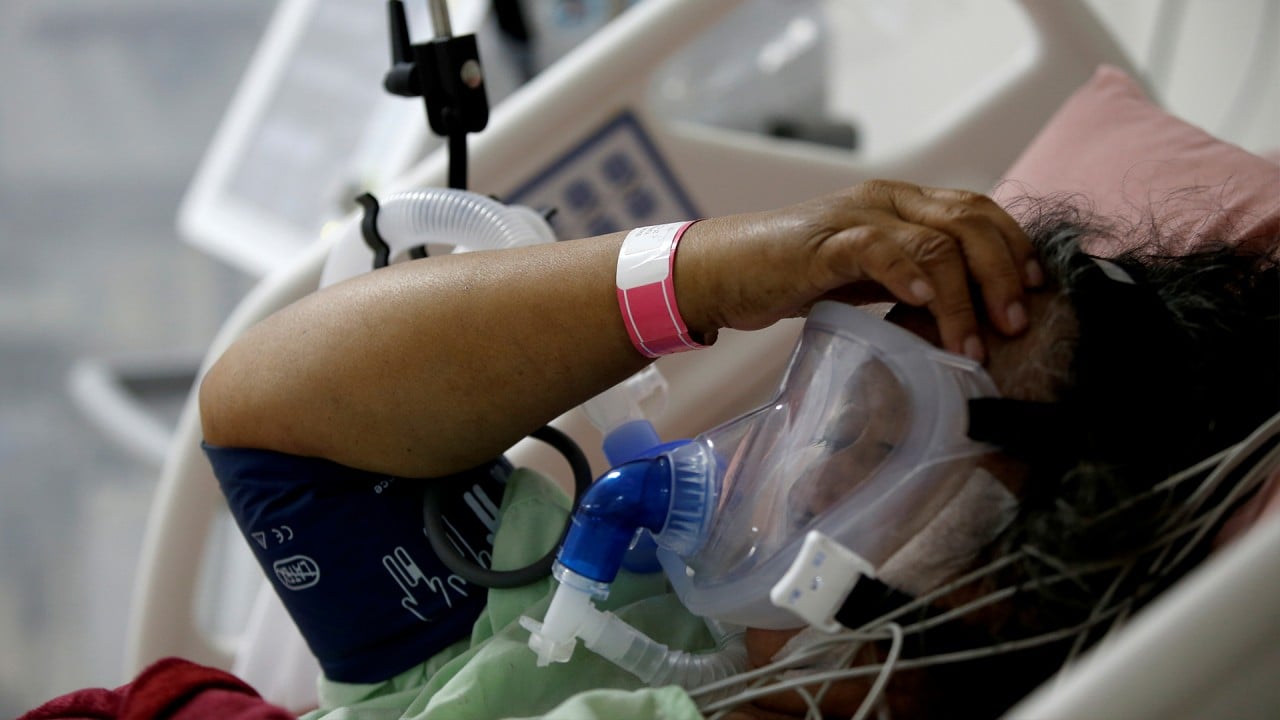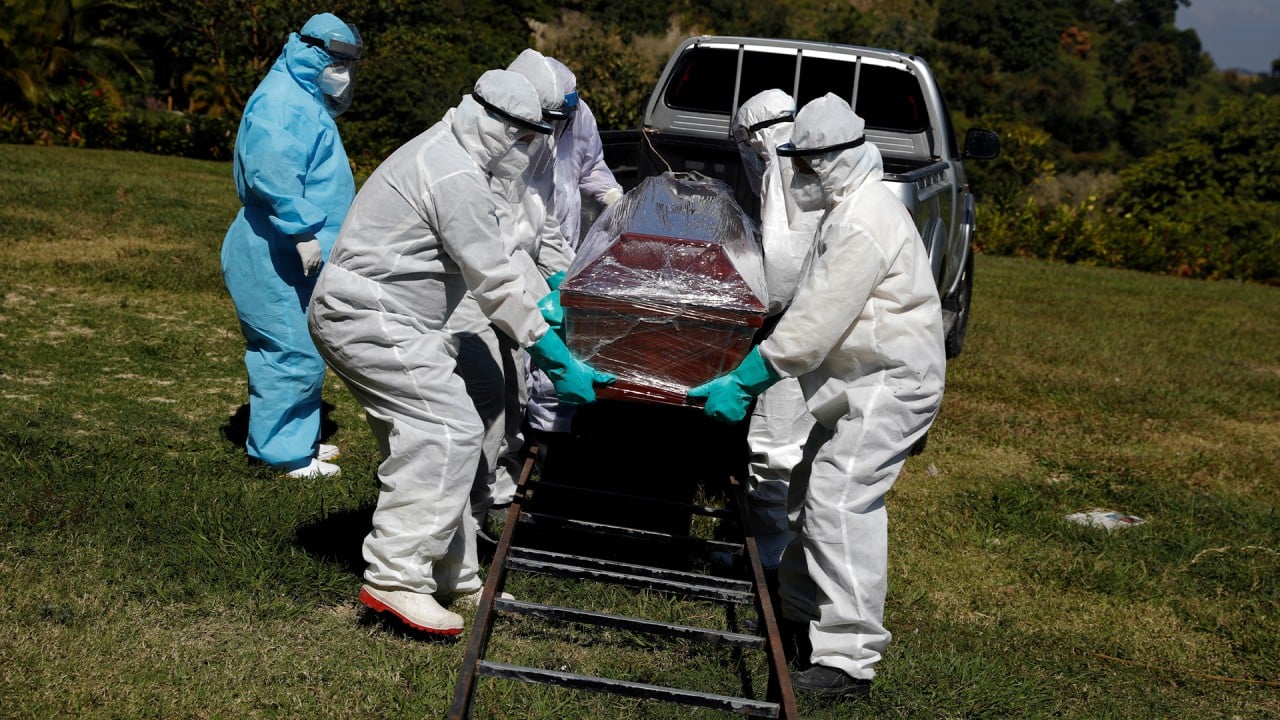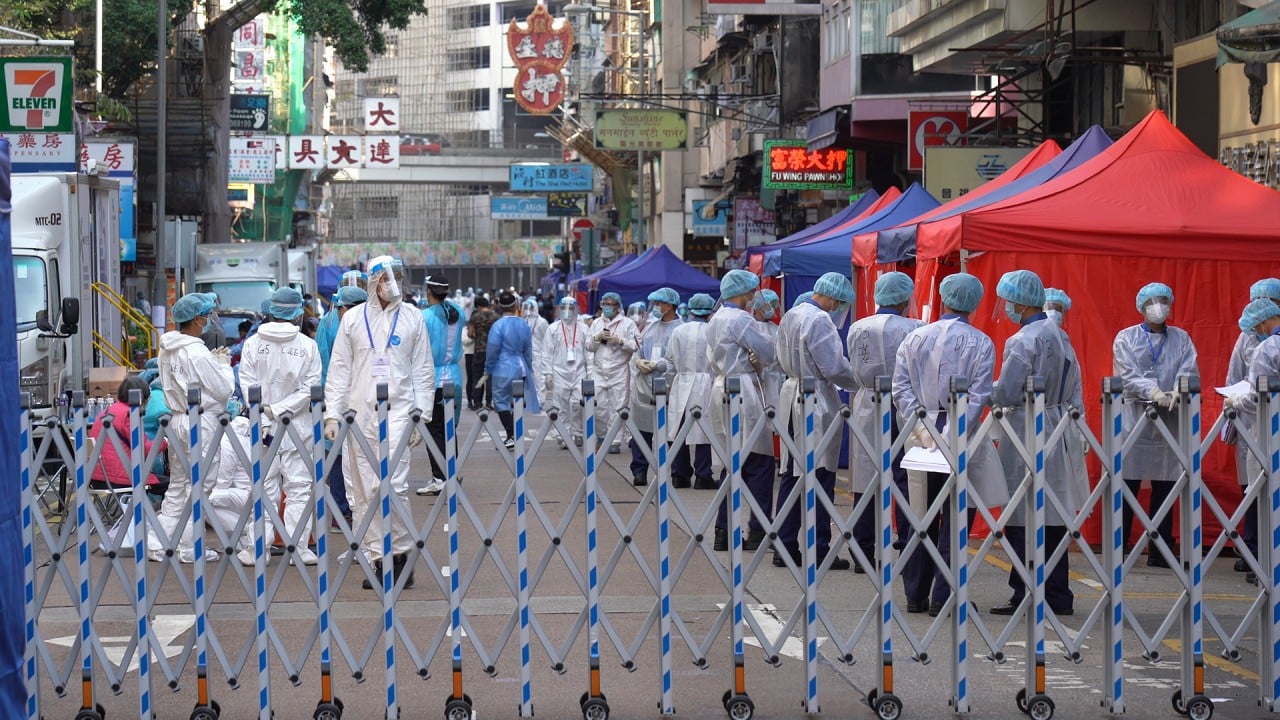
Coronavirus: why vaccine inequality in Asia threatens the world’s recovery
- If the big problem of 2020 was the coronavirus, the big one of 2021 is shaping up to be vaccine inequality
- Put simply, if rich countries continue to hog the shots then everybody will suffer
If the biggest problem of 2020 was the coronavirus, the biggest one of 2021 is shaping up to be vaccine inequality. Put simply, rich countries are hogging the shots.

03:17
Indonesia’s coronavirus cases surpass 1 million as country continues mass Covid-19 vaccinations
Agathe Demarais, the global forecasting director at the EIU, said the gap between rich and poor countries was stark.
At this rate, advanced economies would have vaccinated the bulk of their adult populations by mid-2022, whereas most developing countries would not have widespread access to the shots until 2023, estimated the EIU. For the poorest countries, mass immunisation might not happen until 2024.
The problems likely to face countries slow to vaccinate their populations seem familiar by now: spiking infection rates lead to hospitals being overwhelmed, in turn leading to lockdowns that hit the economy.
But any rich country that, having secured its own supply of vaccines, feels tempted to turn a blind eye to such problems should think again. Vaccine inequality is not just a poor man’s problem – it will hit the pockets of the rich, too.
Vietnam beat coronavirus. With its economy booming, can it face up to China?
A study commissioned by the International Chamber of Commerce Research Foundation found vaccine inequality could cost the global economy as much as US$9.2 trillion. And almost half of that, or US$4.5 trillion, would be borne by advanced economies, whose exports would be hit by lowered consumption and supply chain problems as lockdowns in unvaccinated developing economies choked off the supply of intermediate goods.
As Professor Teo Yik Ying, dean of the National University of Singapore’s Saw Swee Hock School of Public Health pointed out, there are far fewer advanced economies than emerging ones. “So what this means is that there will still be a large part of the world that will not be vaccinated even after the first half of this year,” he said.
“It should be clear by now that what happens in a single country has the potential to affect the rest of the world.”

01:59
Worldwide coronavirus death toll nears 2 million
NO COUNTRY IS AN ISLAND
Teo pointed to Singapore to illustrate his point. The island nation “relies crucially on her neighbours for food, water, and many other resources” and shares with Malaysia one of the busiest land borders in the world.
When Malaysia went into lockdown in March last year, workers and students in both countries who would usually cross the border daily were left stranded, unable to see family or work for months on end. This hit both economies and led to staffing problems for Singapore’s carpentry sector and public transport system, both of which employ many Malaysians.
Malaysia, currently in its second lockdown, has more than 300 active clusters of infections, and is reporting more than 3,000 new cases a day.
And while it has procured 59.7 million doses of the vaccine and plans to inoculate 70 to 80 per cent of its 32 million population over the next 18 months, its vaccination programme looks likely to take more than twice as long as Singapore’s.
“As long as Malaysia continues to struggle with the pandemic, it will have an economic impact on Singapore as well,” said DBS Group senior economist Irvin Seah.

The impact of lockdowns extend far beyond a country’s immediate neighbours, threatening havoc with international supply chains, particularly in manufacturing and agriculture.
Malaysia’s second lockdown shut 28 factories of Top Glove, the world’s largest manufacturer of
surgical gloves – the very items health workers in countries around the world rely on to keep them safe while fighting the pandemic.
Meanwhile, as long as the virus is active in some part of the world, some form of border restrictions will be needed as even inoculated economies will have vulnerabilities. No vaccine is 100 per cent effective, while some sections of the population – such as people with autoimmune diseases, pregnant women or young children – may be advised against receiving the shots. Experts are also divided on how much of a threat mutations of the virus might pose in a vaccinated country.
According to Pulse Asia, a private pollster, almost half of 2,400 Filipinos surveyed said they would refuse vaccination, 84 per cent of them citing uncertainties over safety. The Philippines is also likely to face logistical challenges in delivering vaccines as its population is spread over more than 7,000 islands.
This is a big problem for an economy that was one of Asia’s fastest growing before the pandemic hit. In 2019, GDP grew 5.9 per cent; in the third quarter of last year it contracted 11.5 per cent.
Dindo Manhit, managing director of Filipino think tank Albert del Rosario Institute for Strategic and International Studies, said the country needed a successful vaccination programme, or the pandemic “would hamper the country’s prospects for quick economic recovery”.
For the poorest countries, facing a wait of years before mass immunisation is complete, is there a hope they could achieve herd immunity through another route – infection?
Yes, but experts say it wouldn’t be pretty.

Teo thought few places would get to this point and any that did would pay huge costs.
“During infection, there would be a considerable degree of avoidable morbidity and mortality, not to mention the accompanying problem of overwhelmed health care infrastructure,” said Teo.
And letting the virus thrive in communities to achieve this goal would cause another problem, said Page-Jarrett: it would encourage the virus to mutate into new strains that could render the current vaccines ineffective.
Pharmaceutical companies say the early indications are that their vaccines will still provide some level of protection, but are still carrying out tests and developing booster shots.
What if vaccines aren’t enough for herd immunity?
Lawrence Wong, Singapore’s co-chair of the virus taskforce, said in the worst case scenario of mutant strains of the virus, “we end up always a step behind the evolving virus”.
Dr Khor Swee Kheng, an independent consultant on global health policies now based in Malaysia, said it was in advanced economies’ “rational self-interest” to protect those who could not afford to pre-buy vaccine shots. It was “short sighted” of advanced economies to focus on their own people and neglect the world, added Teo.
Dr Tedros Adhanom Ghebreyesus, director general of the World Health Organization (WHO), had harsher words: “The world stands at the brink of a catastrophic moral failure if it doesn’t deliver equitable access to vaccines.”

01:01
First 3D scan of the real coronavirus revealed
MORAL FAILURE
In a press conference on Monday, the WHO director general shared the results of the International Chamber of Commerce’s economic impact paper.
He noted that the estimated US$4.5 trillion cost of vaccine inequality to advanced economies dwarfed the US$26 billion the WHO needed to meet the shortfall in funding for its programme to make and distribute treatments and vaccines across the world, the Access to Covid-19 Tools (ACT) Accelerator.
One of the pillars of the programme is Covax, an effort to ensure poorer countries receive fair and equitable access to vaccines by giving them enough doses to inoculate 20 per cent of their populations.
Some experts have suggested rich countries could ease vaccine inequality by donating excess doses to Covax for redistribution.
But rich countries might be unwilling to part with them.
Teo said it was too early to speculate whether they would or not, because too little was known about how successful vaccination programmes would be.
“In the worst case scenario, the vaccine only confers temporary reprieve from symptomatic infections and the immune response wanes after a possibly short period of time”, said Teo.
In that scenario, Abhineet Kaul, senior director of public sector and government at Frost & Sullivan, said countries would then “need another couple of doses within a year [and] it will put significant pressure on demand and supply”.
Vaccine nationalism has already reared its head. Israel – which has secured 8 million doses of the Pfizer vaccine, 6 million of Moderna’s and an undisclosed amount of AstraZeneca’s for its 9 million population – was reportedly asked by ally Cyprus for its excess doses. But its health minister Yuli Edelstein has previously said, regarding excess doses that Israel was “not in the business of trading the extra vaccines” and at most would “see what we can do for our immediate neighbours”. “The fact that the Palestinians are in a bad shape right now is not in Israel’s interests,” he said.
Just on Friday, the European Union said it would empower member states to block exports of vaccines, forcing pharmaceutical companies to seek authorisation before shipping jabs out of the bloc.
From Hong Kong to Britain, governments ranked poorly for response to Covid-19
What the experts agreed on was that there was space for Asean to step up, whether in procuring doses as a bloc or in approving vaccines for use.
Khor said Asean could coordinate pooled procurement for the 655 million citizens in its 10 constituent countries, which would give it “more bargaining power”, and could harmonise vaccine approvals by drug regulatory agencies. Asean could even use its manufacturing and economic framework to explore domestic vaccine production and stockpiling, he said.

03:02
Hong Kong coronavirus lockdown: 10,000 people confined as police cordon off part of Yau Tsim Mong
“I can’t imagine why we can’t have a mechanism for Asean which endorses a certain vaccine or gives approval, which countries in Asean could take as a regional sort of agreement,” said Dr Jemilah Mahmood, senior adviser to the Malaysian Prime Minister on Public Health, during a discussion at the inaugural Temasek Shophouse Conversation.
Meanwhile, the EIU expected Russia and China – both of which have developed vaccines – will adopt a “transactional approach” to delivery and use the shots as a “bargaining chip to advance long-standing interests”.
Khor warned richer countries that if they persisted with “vaccine nationalism” any “pretensions of morality or global leadership” would evaporate, leaving a vacuum for rising powers.
“It is disappointing that despite the first world rhetoric about a rules-based global order, money remains mighty in the pandemic era. While we understand that nation states have a responsibility to their taxpaying citizens first, this must be balanced with a responsibility to the global common good.”
Additional reporting by Tonggo Simangunsong and Elyssa Lopez

